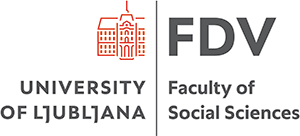In order to avoid your e-mails ending up in the spam folder when sending e-mail invitations via the 1KA server, it is advisable to follow some basic tips when editing the content of the invitations in the 'PUBLISH' - 'Invitations' - 'Email message' tab (in addition to the general terms and conditions for using our e-mail system):
- The content of the 'Subject' field should give the impression that the message is legitimate and relevant to the intended recipient. Inappropriate content in this field can be the quickest way to land your message in spam. Avoid writing complete words in capital letters and using exclamation marks. Also, do not use words or phrases that are often associated with spam, e.g. free, limited offer, bonus, reward, etc.
- The above recommendations also apply to the main 'Message'. It is also important that the message contains a polite invitation to participate in the survey. The text should not be too short, and should avoid question sentences. For the link to your survey, insert the #URL# variable in the text so that the system automatically displays the full URL of the survey in the email. This is especially important when tracking respondents, as this will display the url address with the respondent's code.
- If you write the link is 'HERE >>' and then insert a URL (link) to this word, there is a higher chance that the system will redirect the message to 'spam', so it is recommended to copy the whole url address or use the #URL# variable.
- As you can also use an advanced text editor, when adding images you should take care to maintain a balance between text and graphic elements. If a message contains only images and almost no text, it is more likely to be flagged as spam.
- You must enter a valid e-mail address in the 'Reply to' field. You can change it in the 'PUBLISH' - 'invitations' - 'Settings' tab. On 1KA.Arnes.si you can change your e-mail address in the 'PUBLISH' - 'Invitations' - 'Settings' tab. If you select the 'Send via custom server' option, you will see the 'Server settings' button.
The functionality is only available for users of the 3KA package for individuals, and for users of the business packages for groups.
Related content


